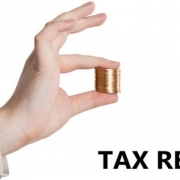IRS Issues Urgent Warning About Social Media Tax Scams
The Internal Revenue Service (IRS) is alerting taxpayers to a surge in fraudulent tax schemes circulating on social media, which have led to thousands of inaccurate tax filings and significant financial penalties.
Why It Matters
The IRS reports that misleading social media posts and self-proclaimed “tax experts” have caused widespread confusion, resulting in over $162 million in penalties and more than 32,000 enforcement actions. Many taxpayers, misled by these schemes, are facing rejected refunds and steep fines.
Key Warning Signs
These scams often promote inappropriate use of tax credits, such as the Fuel Tax Credit and the Sick and Family Leave Credit, suggesting that everyone qualifies—when in fact, these credits are only applicable in specific cases.
Common red flags include:
- Promises of “easy” or “fast” refunds with little documentation
- Encouragement to file amended returns without eligibility
- Advice to ignore IRS notices or respond with false information
The Risks
Filing false or frivolous tax returns can lead to:
- Denied or delayed refunds
A $5,000 civil penalty under IRS Code Section 6702 - Potential audits or further enforcement actions
IRS Officials Speak Out
“These schemes are not only misleading but can cost taxpayers dearly,” said James Clifford, Director of Return Integrity and Compliance Services at the IRS. “So far, over 32,000 penalties have been issued, costing taxpayers more than $162 million.”
What to Do if Affected
Taxpayers who believe they’ve been misled should:
- File an amended return using Form 1040-X
- Respond promptly to any IRS letters
- Consult qualified tax professionals or use official IRS resources
The IRS encourages individuals to follow verified IRS social media accounts, subscribe to IRS e-news, and report scams to phishing@irs.gov or the Treasury Inspector General for Tax Administration.
Source: msn





